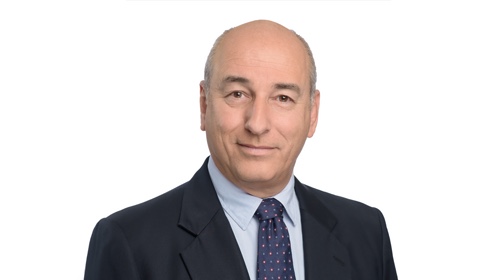2011 HIGHLIGHTS: Supreme Court Rulings Affecting Israel’s Patent Litigation Landscape Amendments to Patents Law Expected in 2012

The Supreme Court limits reliance on the laws of unjust enrichment and trade secrets in patent litigation and generic drug registration process and doubts “selection patents” exist under Israeli law. Amendments to the Patents Law under way concerning early publication and exclusion of pre-grant remedies, service inventions and security-related inventions.
AT A GLANCE
The Supreme Court holds:
• Pre-grant use of an invention cannot be enjoined on the grounds of unjust enrichment.
• Innovative pharmaceutical companies cannot invoke trade secrets to prevent reliance on innovative drug registration files for registering generic equivalents.
• Earlier patent directed to a chemical compound and pharmaceutically acceptable salts thereof does not negate novelty and inventive step embedded in the discovery of a specific advantageous salt; the “selection patents” concept may be inapplicable in Israel.
District Courts
• The Tel Aviv District Court dealt with the seldom addressed distinction between the conception of an invention and its reduction ito practice.
Pending Legislation
• The Proposed Amendment to the Patents Law (No. 12) mandates early publication and rules out pre-grant remedies.
• The Proposed Amendment to the Patents Law (No. 10) makes changes to the mechanism of employer notification of employee inventions and compensation for such inventions, and to the mechanism of restrictive orders for security-related inventions and compensation for restriction.
OVERVIEW
Case Law
The rulings of the Supreme Court reviewed below provide important guidance on several issues that have engaged plaintiffs and counsel in Israel. The decision in LCA 6025/05 Merck & Co Inc v Teva Pharmaceutical Industries Ltd [2011] ends a long period of legal uncertainty, as it rules out reliance on unjust enrichment to enjoin use of an invention claimed in a pending patent application. In HCJ 4675/03 Pfizer Pharmaceuticals Israel Ltd v Ministry of Health [2011], the Supreme Court ruled out reliance on trade secrets doctrines in order to prevent registration of generic equivalents of innovative drugs.
In CA 8802/06 Unipharm Ltd v SmithKline Beecham Plc [2011], the Supreme Court acknowledged the importance of each step of an innovative company’s R&D efforts toward formulating a medicine. It provided an important clarification – possibly a farewell – to the concept of “selection patents” in Israel.
The Tel Aviv District Court in RA (TA Distr.) 49328-10-10 SHL Telemedicine International Ltd v Oren [2011] dealt with a case of first impression regarding the distinction between the conception of an invention and its reduction to practice, holding that a developer of a product is not deemed an inventor, unless she actually contributed to the inventive concept. The decision will be reviewed in more depth in our coming newsletter on service inventions.
Pending Legislation
The Proposed Amendment No. 12,1 expected to be enacted in 2012 and currently undergoing examination before the Constitution, Law and Justice Committee of the Knesset, relates to early publication after 18 months from filing, the opening of the examination file, the ability to obtain ex post facto compensation for infringement during the interim period, as well as the inability to seek remedies in respect of misappropriation of inventions not protected by valid patents (with exclusion of misappropriation of trade secrets and unfair competition).
The Proposed Amendment No. 10,2 also expected to be enacted in 2012 and currently undergoing examination before the Constitution, Law and Justice Committee of the Knesset, envisages changes to the employee’s duty to notify the employer of inventions made in the course of the employment, and confers on the employer the initial decision regarding compensation for service inventions. The Amendment also contemplates changes to the mechanism of restrictive orders in respect of applications for security-related inventions, examination of such applications, and compensation for the restriction.
We will discuss the developments in the legislation of the above Amendments in an upcoming newsletter.
THE SUPREME COURT RULINGS IN DEPTH
The Supreme Court rules that a patent applicant cannot rely on the Law of Unjust Enrichment or on the tort of misappropriation of trade secrets under the Commercial Torts Law to enjoin competitors from using its invention before the grant of patent (LCA 6025/05 Merck & Co Inc et al v Teva Pharmaceutical Industries Ltd et al [19.5.2011]).
Affirming the District Court’s refusal of interim injunction and recall orders sought by Merck against Teva and Unipharm in respect of marketing their generic versions of Merck’s innovative FOSALAN for the treatment of osteoporosis, the Supreme Court ruled out the possibility of obtaining injunctive relief in reliance on unjust enrichment or trade secrets while a patent application is pending.
The issue: are pre-grant injunctions available?
The issue before the Court was the extent of protection, if any, available to a patent applicant in the interim period before the grant of a patent, given that the Patents Law, 5727 – 1967 (the “Patents Law“), only provides for post-grant remedies;3 in other words, the question was whether the Patents Law set forth a conclusive mechanism that excluded any remedies before the registration of a patent was conferred.
The reliance on the law of unjust enrichment prior to the grant of a patent was sought, inter alia, due to the fact that according to the law in Israel opposition to a patent is held prior to the grant thereof, and hence the interim period between filing and the final grant may be prolonged for considerable time.
In deciding the appeal, the Supreme Court heard the position of the Attorney General, whose stance reflected the Proposed Amendment No. 12 of the Patents Law, which, inter alia, provides for the exclusivity of remedies under the Patents Law.
The Supreme Court interprets the Patents Law to exclude pre-grant remedies on grounds of unjust enrichment and trade secrets
The Supreme Court emphasized that the Patents Law strikes a delicate balance between the patent owner’s interest in protecting his invention, underpinned by the public interest in encouraging innovation, and the public interest in free competition, especially in the field of pharmaceuticals, where competition promotes the public interest in lowering drug prices. Such balance, the Court held, was reflected in that the Patents Law, in section 179, permits only post-grant actions while allowing retroactive damages for actual losses in the interim period, after acceptance and prior to the grant. During the interim period the applicant has no property right in the invention and no right under the Patents Law to protect the invention through obtaining remedies, whether injunctive or monetary; thus anyone may exploit the invention in the interim period subject to a risk of subsequent damages, which creates a “balance of threats.”
The Court noted that the laws of unjust enrichment may apply to protect intellectual property rights and serve as the source for injunctions (not expressly provided for in the Law of Unjust Enrichment, 5739 – 1979);4 however, such applicability, in accordance both with case law and with the express language of the Unjust Enrichment Law, is subject to the absence of a conclusive arrangement in lex specialis that excludes such application.
The Supreme Court as High Court of Justice holds that reliance of the Ministry of Health on the innovative drug registration file in registering generic version of the drug does not constitute improper use of the innovative company’s trade secrets or improper use of the Ministry’s powers (HCJ 4675/03 et al, Pfizer Pharmaceuticals Israel Ltd et al v Ministry of Health et al [12.5.2011]).
Background: Pfizer and GlaxoSmithKline attack Ministry of Health’s use of registration data
In the petitions filed to the Supreme Court sitting as the High Court of Justice, Pfizer and GlaxoSmithKline contended that the use made by the Ministry of Health (“MOH”) of the registration files of their innovative pharmaceuticals for registering generics in the Register of Pharmaceuticals constituted, inter alia, the misappropriation of trade secrets. The petition related to generic versions of Pfizer’s NORVASC (amlodipine) for hypertension (after expiry of Pfizer’s patent) and SmithKline’s AVANDIA (rosiglitazone) for Type 2 diabetes (simultaneously with a patent infringement claim).
The Supreme Court dismisses the petition against the Ministry of Health:
• MOH registration policy is not invalid on administrative grounds
The Supreme Court rejected the argument that the MOH acted ultra vires in that it registered generics not eligible for accelerated registration.
The Court also refused to intervene in the MOH policy to register generic preparations containing the same molecule as the original preparation but in a different salt form; the petitioners had challenged such policy, contending that the MOH interpretation of “active substance” as referring to the “active moiety” of the molecule, rather than to the entire active molecule, was erroneous. The Court held that the debate concerned a professional question and that the policy adopted by the MOH, given the differences of professional opinion in the world, was not unreasonable.
• MOH reliance is not a misappropriation of trade secrets
Pfizer further contended that MOH reliance on the registration files of innovative medicines’ constituted misappropriation of a trade secret within the scope of section 6 (b)(2) of the Commercial Torts Law, 5759 – 1999. The Supreme Court found that, since the MOH relied on the fact of the existence of the innovative registration file and not on its contents, no use was made of trade secrets contained therein, whereas the fact of its existence was not a trade secret.
Furthermore, the Supreme Court held that the MOH did not owe a fiduciary duty toward the innovative companies, which had no legitimate expectation that the registration files would not be used for the registration of generics, and suggested that the MOH may use data from the innovative registration file for registering a generic, as it is guided by public health interest and not by fear of injury to the IP rights of an innovative company, protectable in civil proceedings.
The court noted in an obiter dictum that after the filing of the petitions, an amendment of the Pharmacists Ordinance in 2005 introduced the so-called “data exclusivity” provisions,5 whereunder marketing approvals cannot be issued in reliance on confidential registration data during the term of protection; the court emphasized, however, that the amended statute would not avail the petitioners, as it merely bars the issuance of marketing approvals but does not bar registration of generic versions in the Register of Pharmaceuticals.
• Generic drug name referencing an active component is not misleading
Finally, the Court also dismissed Pfizer’s claim that the name of the generic in question (Amlodipine Teva) is liable to mislead, contrary to the requirements of the Pharmacists Regulations,6 due to a risk of confusion with NORVASC or other attribution to Pfizer, as the name contains the medicine’s active component. The court held that the use of the active component in the name, i.e., “unbranded” medical information, is permissible. In permitting registration the MOH should be guided by public health considerations, and not by protection of individual rights. The Court further held that, even assuming that inclusion of the name of an active ingredient in the trade name is liable to confuse, such confusion is outside the scope of confusion that the Pharmacists Regulations are intended to prevent, as their purpose is to prevent confusion that is hazardous to public health and they do not address confusion in the context of protecting competing companies’ rights; moreover, in the present case the medicines were prescription-only and recognized by the MOH as substitutes for each other, and thus confusion would not be hazardous.
The Supreme Court rules that SmithKline Beecham’s earlier patent directed to a chemical compound and its pharmaceutically acceptable salts does not negate novelty and inventive step embedded in the discovery of a specifically useful salt thereof; opines that the “selection patents” concept may be inapplicable in Israel (CA 8802/06 Unipharm Ltd et al v SmithKline Beecham plc et al [18.5.2011]).
The Supreme Court dismissed an appeal from the judgement of the Tel Aviv District Court7 that held that the Israeli generic company Unipharm Ltd and its manufacturer infringed SmithKline Beecham’s (“SKB”) registered Israeli patent in respect of rosiglitazone maleate, the active ingredient in SKB’s blockbuster AVANDIA for Type 2 diabetes.
SKB sues generic manufacturers for patent infringement, defendants attack its patent
SKB sued Unipharm and its manufacturer Trima Ltd, which manufactured a generic version of AVANDIA under the name ROSI, for patent infringement, unjust enrichment and various commercial torts.
Unipharm argued in defense that SKB’s Israeli patent8 – directed to the rosiglitazone maleate compound, the process for its preparation and pharmaceutical compositions containing such compounds (the “Israeli Patent”) – was invalid in light of SKB’s earlier European patent9 (the “European Patent”) directed to a large group of thiazolidinedione (TZD) compounds including rosiglitazone and their pharmaceutically acceptable salts. Unipharm further argued that the Israeli Patent did not meet the criteria of a “selection patent” in respect of the European Patent, which would have allowed the Israeli Patent to overcome the hurdles of lack of novelty / inventive step.
The District Court rules: earlier patent does not negate novelty or inventive step
The District Court found infringement, holding that the European Patent, which covered rosiglitazone and its salts, did not negate novelty as it neither specifically claimed rosiglitazone maleate, finally chosen due to its better selectivity, nor described its production. The inventive step was held to consist of isolating the salt rosiglitazone maleate and of identifying the rosiglitazone maleate as the TZD compound having improved selectivity out of all TZD compounds included in the European Patent (which addressed their therapeutic activity but not their selectivity). Emphasizing the industry’s long-felt need and SKB’s investment of considerable resources in arriving at rosiglitazone maleate and discovering its improved features, the District Court held that the Israeli Patent met the requirements of novelty and inventive step and held that the claim regarding its being a selection patent was redundant. Since Unipharm had not yet launched the medicine, unjust enrichment was not found. A permanent injunction was granted and NIS 100,000 awarded in costs.
On appeal, Unipharm argued that the District Court erred, inter alia, in not treating the Israeli Patent as a “selection patent” that failed to meet the criteria set for a selection patent by case law in the Palimport10 matter, and also erred in finding novelty and inventive step.
The Supreme Court rules:
• Patent at issue is not a selection patent; addresses the doctrine of selection patents to the extent that this doctrine is still applicable
The Supreme Court addressed the concept of a selection patent, borrowed from English law for a patent that makes a selection of a particular substance, or group of substances, from a class of homologous substances already disclosed in an earlier patent where the selected substance or group possesses an advantage (or avoids a disadvantage) that could not have been predicted. Holding that rosiglitazone maleate, which was first described in the Israeli Patent, is a new chemical substance possessing special advantages such as selectivity, stability and water-solubility, and that, being an acidic salt, it does not belong to the group of basic salts disclosed in the earlier European Patent, the Supreme Court held that the patent directed to rosiglitazone maleate need not be defined as a “selection patent”.
The Supreme Court further expressed doubt that the doctrine of selection patents, invoked in Palimport in 1970 in respect of a patent to which the British Patents and Designs Ordinance applied, continues to apply following the enactment of the Patents Law, 5727 – 1967, which sets general criteria of patentability without providing for selection patents, and thus may have ruled out the concept of a selection patent as such.
• Earlier patent does not destroy novelty
The Supreme Court held that the European Patent did not constitute a novelty-destroying publication, which, under Israeli law, should contain the invention in its entirety. The Supreme Court held that the District Court properly ruled on the basis of expert testimony that the rosiglitazone maleate salt was not included in the TZD compounds covered by the European Patent (directed, inter alia, to rosiglitazone and all of its pharmaceutically acceptable salts), given the admission of the applicant’s own expert that the European Patent does not explicitly describe rosiglitazone maleate.
• Inventive step proven where complex research was required to discover and isolate suitable salt
The Supreme Court held that the District Court properly concluded the inventive step consisted not only of discovering improved features (such as selectivity) of rosiglitazone but also of isolating the rosiglitazone maleate salt. The conclusion of non-obviousness was well supported by the evidence of the complex and multi-disciplinary research and development process necessary for selecting rosiglitazone maleate as the salt suitable for developing and manufacturing the medicine.
1 The Proposed Amendment to the Patents Law (Amendment No. 12) (Publication of Patent Applications), 2011, Government Bill No. 597, published on June 26, 2011.
2 The Proposed Amendment to the Patents Law (Amendment No. 10), 2010, Government Bill No. 541, published on October 18, 2010.
3 Section 179 of the Patents Law provides:
“Action for infringement shall be brought only after the patent was granted; however, if action for infringement was brought, then the Court may grant relief for an infringement committed after the date of publication under section 26”.
4 See LCA 5768/94 A.S.I.R. Import Manufacture and Distribution v Forum Accessories and Consumer Products Ltd [1998].
5 Section 47D of the Pharmacists Ordinance [New Version], 5741 – 1981.
6 Rule 6(a)(2).
7 CC(TA Distr.) 2091/02 SmithKline Beecham plc et al v Unipharm Ltd et al [25.9.2006].
8 IL 106904, claiming priority from GB 9218830.9 filed in September 1992.
9 EP 0106228A1.
10 CA 273/70 Palimport Ltd v Ciba Geigy Ltd et al [1970].
This article is provided for general information only. It is not intended as legal advice or opinion and cannot be relied upon as such. Advice on specific matters may be provided by our group’s attorneys.

